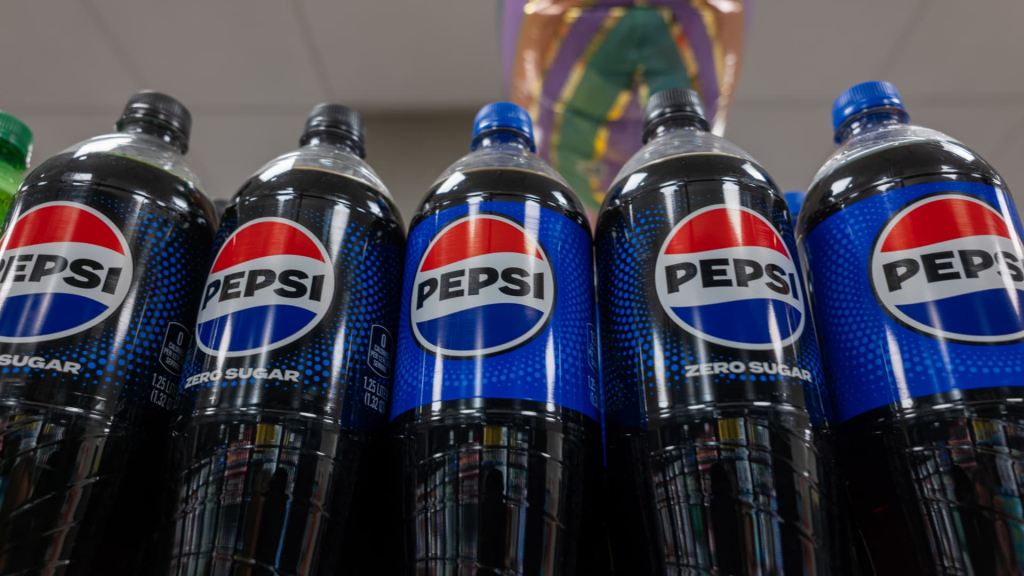PepsiCo announced its quarterly earnings on Thursday, showcasing a blend of results that reflected strong international sales but declining demand in North America.
The beverage and snack manufacturer lowered its forecast for core constant currency earnings per share. This downward adjustment is attributed to new tariffs, economic instability, and changing consumer behaviors.
CEO Ramon Laguarta highlighted the challenges ahead, stating, “As we look ahead, we expect more volatility and uncertainty, particularly related to global trade developments, which we expect will increase our supply chain costs. At the same time, consumer conditions in many markets remain subdued and similarly have an uncertain outlook.”
As a result of these developments, PepsiCo shares dropped by 2% during premarket trading.
According to a survey by analysts from LSEG, here are the company’s reported figures versus Wall Street expectations:
- Earnings per share: $1.48 adjusted vs. $1.49 expected
- Revenue: $17.92 billion vs. $17.77 billion expected
In the first quarter, Pepsi reported a net income of $1.83 billion, translating to $1.33 per share, a decrease from last year’s $2.04 billion, or $1.48 per share.
After accounting for restructuring charges, acquisition costs, and other factors, the adjusted earnings came in at $1.48 per share.
Net sales experienced a 1.8% decline, totaling $17.92 billion, although organic revenue, which excludes acquisitions, divestitures, and foreign currency, increased by 1.2% for the quarter.
Volume in Pepsi’s convenient foods segment fell by 3%, while beverage volumes remained unchanged, both metrics excluding pricing and currency adjustments.
To address the challenges within its North American operations, Laguarta noted that the company is “taking actions” to enhance performance. The domestic food business’s volume dipped by 1%, while the North American beverage segment saw a 3% decrease.
“Consumers have remained value-conscious across brands and channels as the cumulative impacts of inflationary pressures have strained budgets and altered food shopping patterns,” reflected Laguarta and CFO Jamie Caulfield in their remarks.
Plans for improving its North American performance include expanding into multicultural and functional product categories, alongside recent acquisitions such as Poppi, a prebiotic soda brand. The company also aims to strengthen consumer engagement and enhance in-store product visibility and placement.
Despite the challenges, there were positive trends; Pepsi Zero Sugar contributed to market share gains, while brands like Miss Vickie’s chips and Quaker’s rice cakes saw revenue growth.
Looking ahead, PepsiCo now anticipates that its core constant currency earnings per share will remain relatively stable compared to the previous year, revising its earlier expectations of mid-single-digit growth.
The company maintained its prediction for a low-single-digit rise in organic revenue.
This story is developing. Please check back for updates.


























